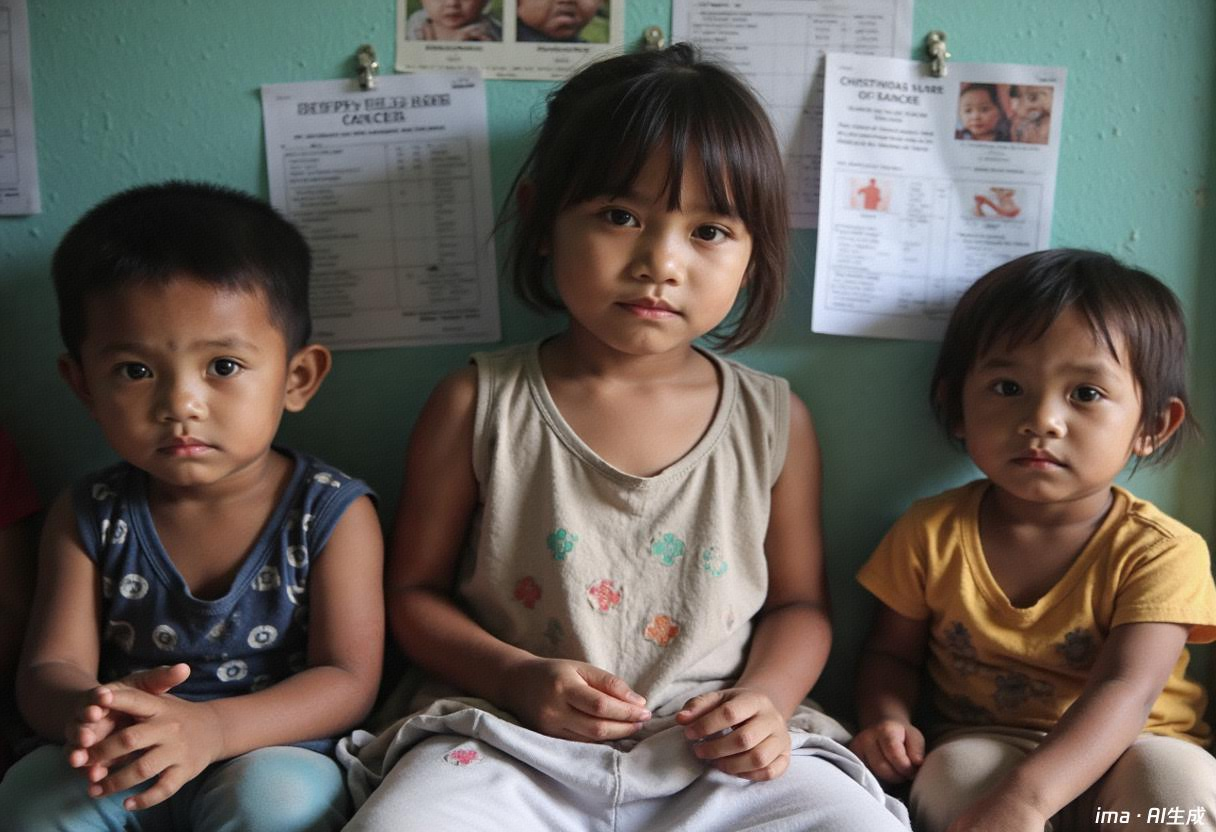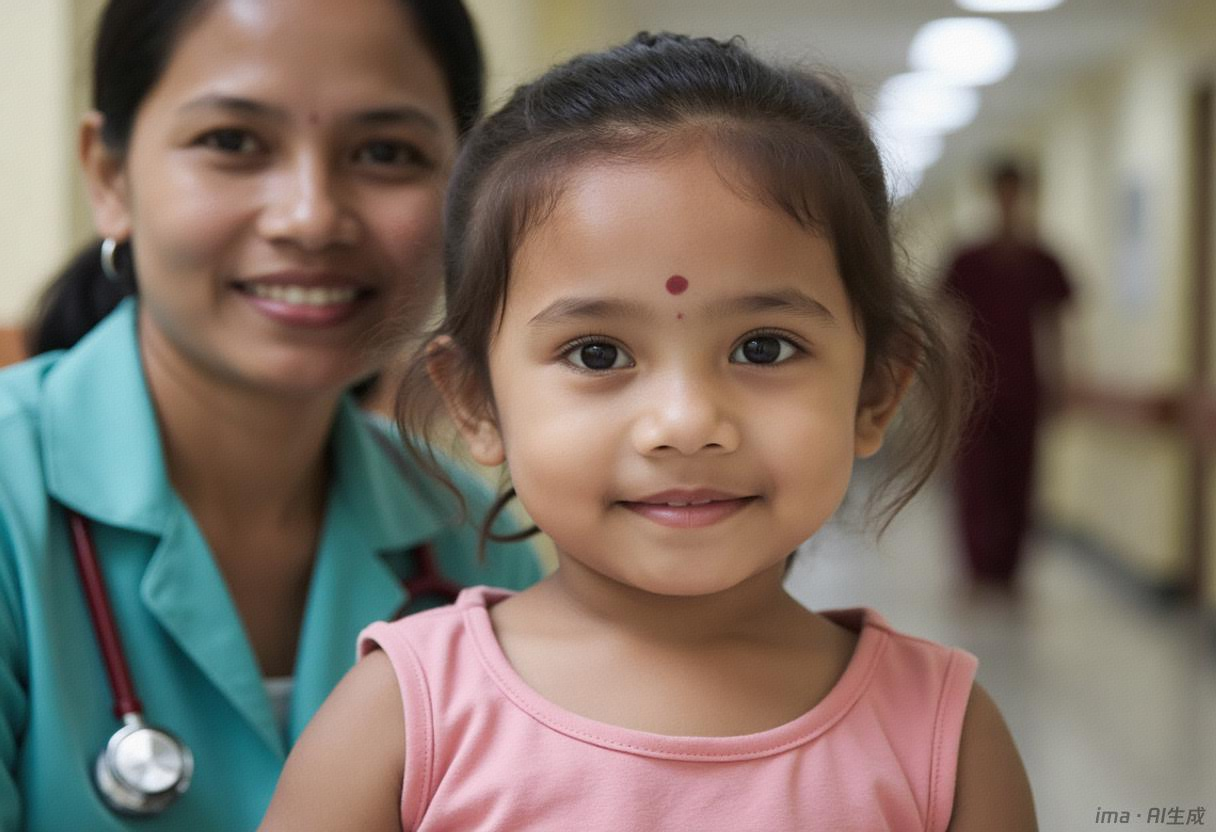Tips for Dealing with Diarrhea and Constipation During Children's Treatment
Tips for Dealing with Diarrhea and Constipation During Children's Treatment
In this issue, we will share a written version of the nutrition class taught by Ms. Lingxia Sun, a clinical nutritionist from Johns Hopkins Hospital in the United States. This content is for parents to better learn and review relevant knowledge in conjunction with the video.
During treatment, children are prone to various side effects. In the last issue, we discussed how parents should respond to nausea and vomiting during treatment. Today, we continue with the question: what should we do about diarrhea and constipation?
Why Does Diarrhea Occur?
Diarrhea can result from both the tumor itself and the treatment. If the tumor affects the liver, gallbladder, bile ducts, or pancreas, it may impair fat digestion, leading to diarrhea. In such cases, the child's stool may float on the water's surface or appear greasy, indicating poor fat digestion and absorption. Parents can consult with doctors about using lipase to aid in fat digestion.
Most cases of diarrhea during treatment are caused by medication side effects; high doses of antibiotics can trigger diarrhea. Additionally, abdominal radiation therapy can impact intestinal function, making diarrhea more likely. Severe diarrhea can also occur when graft-versus-host disease affects the gastrointestinal tract after a transplant.
What to Do About Diarrhea?
1. Stay Hydrated
When a child experiences severe diarrhea (i.e., continuous watery stools), the main concern is dehydration. This is especially critical for younger children, such as infants or those under three. If severe watery diarrhea occurs, parents should consult a doctor and keep some oral rehydration salts at home, which contain sodium, potassium, and sugar to help maintain electrolyte balance. If the situation is severe, a hospital visit for intravenous fluids may be necessary.
It’s important to emphasize adequate hydration not just during diarrhea but throughout the entire treatment process. Proper hydration helps meet the body's needs and supports the elimination of medications, reducing their toxic side effects.
Here is a recommended daily water intake based on dietary guidelines. This amount refers to the total liquid intake for the day, including water, milk, soup, and any fluids administered intravenously. During chemotherapy, children should aim for 1.5 to 2 times the recommended intake.
2. Limit Insoluble Dietary Fiber
Dietary fiber is classified into soluble and insoluble types based on whether it dissolves in water. Insoluble fiber is difficult for the body to digest. Generally, vegetable peels, fruit skins, whole grain products, brown rice, and corn contain high amounts of insoluble fiber, which promotes intestinal motility and helps with bowel movements. However, if diarrhea is already present, it is not recommended.
Therefore, when a child has diarrhea, substitute coarse grains with refined grains like white rice and white flour, and peel vegetables and fruits before eating. Soluble fiber can help absorb water and regulate gut microbiota, which can also assist in alleviating diarrhea.
Parents can follow medical advice to choose some soluble fiber supplements to help relieve diarrhea, such as wheat dextrin, pectin, or partially hydrolyzed guar gum, which can help the intestines absorb water and alleviate watery stools. This is especially important when watery stools occur due to graft-versus-host disease.
3. Choose Appropriate Foods
During diarrhea, it's crucial to avoid high-fat foods (like fried foods, fatty meats, and pork skin), sugary drinks (like fruit juices and sodas), sugar alcohols (like xylitol and sorbitol, commonly found in sweetened sugar-free products), and irritating foods, which can vary from person to person. For some, spicy foods can worsen diarrhea, so it's best to avoid them temporarily. Caffeine (found in coffee, tea, and chocolate) and very hot or cold foods can also irritate the gut.
It's also important to be cautious with dairy products. After a period of diarrhea, children can easily develop secondary lactose intolerance due to impaired small intestine absorption. In such cases, consuming milk can worsen diarrhea. Lactase supplements or lactose-free milk can be used, and for children with poor nutritional status, specialized medical formula foods that are lactose-free can be considered.
4. Consider Probiotics
Probiotics can be helpful for diarrhea, especially when caused by antibiotic-induced disruptions in gut flora. However, for children with tumors, particularly those who are immunocompromised, special attention must be given to the sources of probiotics to avoid introducing harmful bacteria that could lead to infections.
It’s important to understand that probiotics are not a single entity; they are a category that includes various strains with different dosages. Therefore, it is not recommended for parents to give their children probiotics during cancer treatment without consulting a qualified doctor or clinical nutritionist.
5. Medication Control
If dietary adjustments don’t provide relief, it is essential to communicate with the doctor to select appropriate medications.
Why Does Constipation Occur?
Constipation can arise from tumor effects on the digestive system, but it is often more related to medication side effects. Some chemotherapy drugs can cause constipation, while certain painkillers and sedatives may slow down intestinal motility, leading to constipation. Insufficient hydration or lack of exercise during treatment can also contribute to constipation. The less active a child is, the worse the constipation can become, so parents should encourage their children to move around in the hospital as much as possible.
What to Do About Constipation?
1. Stay Hydrated
Drinking water, soup, nutritional liquids, or fruit and vegetable juices is essential. However, avoid drinking too much at once to prevent nausea; instead, sip small amounts throughout the day.
2. Eat More Fiber-Rich Foods
Include vegetables, fruits, whole grains (like whole wheat bread, whole wheat noodles, sweet potatoes, taro, and beans), as well as nuts and seeds. Usually, we cook white rice for children, but for those without diarrhea, a mixture of grains is recommended. Adding millet, oats, red beans, green beans, and corn to rice not only enhances nutrition but also provides ample dietary fiber to prevent constipation.
If a child is already constipated and experiences bloating, it's advisable to avoid gas-producing foods such as dried beans, broccoli, cabbage, onions, and asparagus.
3. Encourage Movement
Encourage any movement possible; if a child can stand, they should avoid lying down. For those who can only stay in bed, parents can help them stretch their arms and legs. Many children I see in the hospital lie in bed playing on their phones all day, which is detrimental to their treatment. This not only increases the risk of constipation but can also lead to decreased muscle mass and function, raising the toxic side effects of medications due to loss of muscle.
4. Establish a Routine for Bowel Movements
Encourage attempts to use the toilet at regular intervals, regardless of whether there is an urge. Particularly in the morning, drinking a cup of warm water can help stimulate gastrointestinal motility and encourage bowel movements.
5. Adjust Toilet Posture
As illustrated in this comic, placing a small stool under the feet when sitting on the toilet can facilitate easier bowel movements.
6. Be Proactive in Prevention
It’s crucial to understand your child's bowel habits. For instance, if your child typically has a daily bowel movement but doesn’t today, it’s a sign to be vigilant. If they haven’t had a bowel movement by the next day, intervene immediately with increased vegetable and fruit intake and hydration or consider medication intervention. Waiting three to five days without a bowel movement can make intervention much more challenging.
7. Use Medications
Some chemotherapy drugs, such as vincristine, vinblastine, or high doses of painkillers, are particularly likely to induce constipation. When using these medications, consult a doctor to see if it is possible to preemptively use medications that help stimulate intestinal motility and absorption of water to alleviate constipation.
Course Instructor: Ms. Lingxia Sun, Former Clinical Nutritionist at Johns Hopkins Hospital
Course Development Assistant: Jia Zuo
Content Editing: Yu Xia
Layout: Yi Meng
Proofreading: Ya Li Hu
Search
Related Articles

Relaxation Therapy & Peace Care
Jul 03, 2025

Rare Childhood Tumour
Jul 03, 2025

Inflammatory Myofibroblastoma
Jul 03, 2025

Langerhans Cell Histiocytosis
Jul 03, 2025

Angeioma
Jul 03, 2025